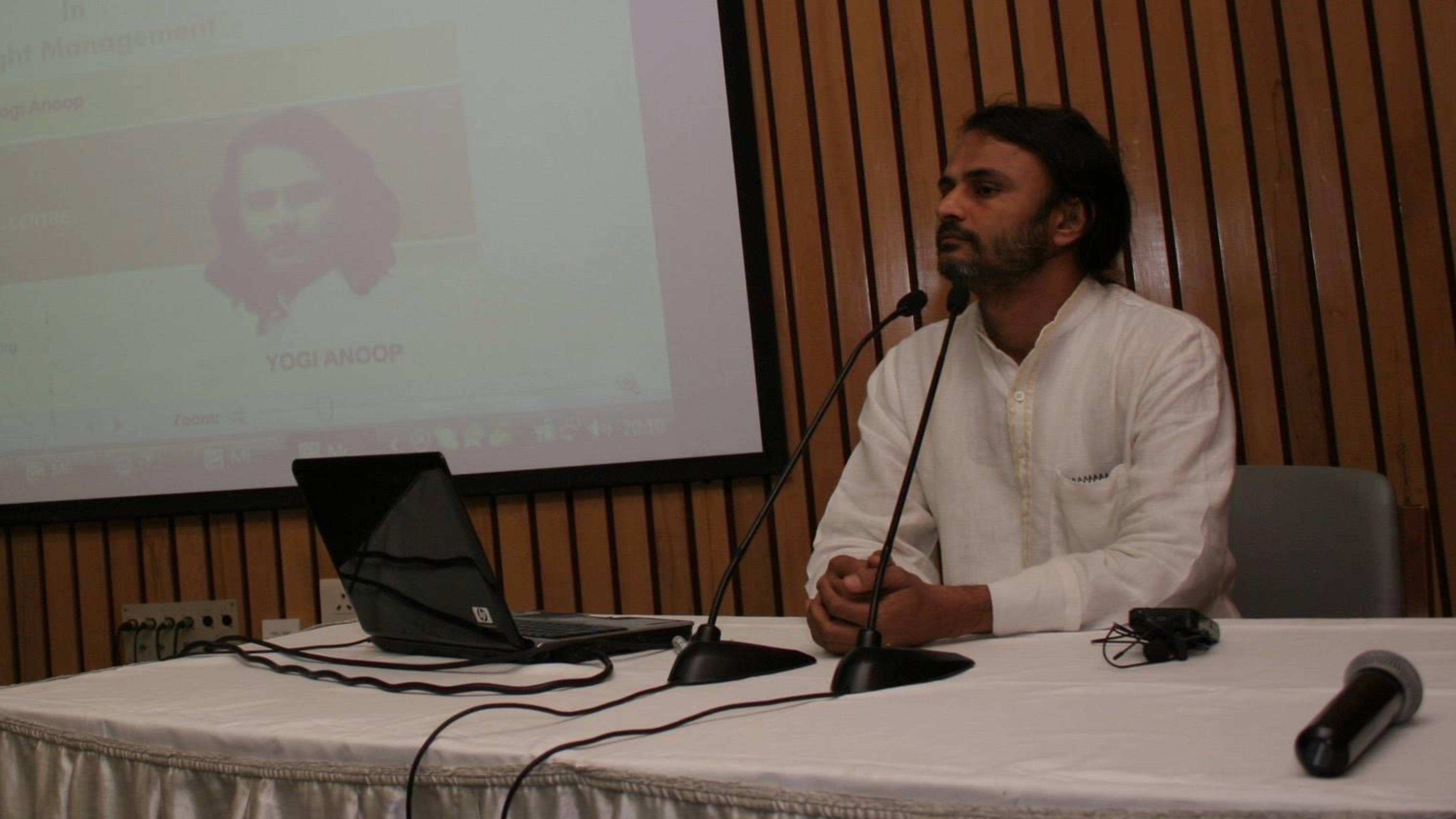
Mind’s Peak: Freedom From Turmoil
7 months ago By Yogi AnoopThe Peak of the Mind — Emergence of the Self in the Dissolution of the Mind
The mind is a continuous element — it flows like water, gaining momentum through the subtle mechanisms of the senses and the brain. The more rapid the mind’s movement — that is, its thinking, imagination, and ideation — the more active the subtle mechanisms of the brain become. The intensity with which one indulges in self-created thoughts, desires, and memories begins to manifest, directly and indirectly, in the major organs of the body.
Since it is continuously engaged in the process of ‘doing’, ‘thinking’, ‘storing’, and ‘changing’, it always finds itself confined within the walls of these processes. But the question is: does the mind also have a horizon beyond which it can liberate itself from all these boundaries? Like a spider caught in the very web it has spun — can it recognize its own limits and dissolve itself? Can the spider cease its activity and stop spinning the web?
This is the state that I call the peak of the mind — when the mind, recognizing its own movement, direction, and existence, dissolves into emptiness. This mental emptiness is not depression or inactivity, but a deep cognitive dissolution of the mind in the innermost space, in which the movement of the mind becomes still and ceases. And in that stillness, only the awareness of the self — the “I” — remains. In this state, there are no thoughts, no others — only a natural presence remains. This is the point where the flame of discernment (vivek) and true knowledge arises spontaneously, without any external means or practice.
The Psychological and Therapeutic Dimension of this State
This culmination of the mind is not merely a philosophical experience; it can also offer deep insight into the mental illnesses that are increasingly prevalent in society today — such as anxiety, depression, inner conflicts, crisis of self-existence, self-doubt, and so on.
At the root of many psychological disorders lies a fundamental tendency — to become entangled in the emotional narratives and images created by the mind, without knowing what they are or where they are heading. Over time, the mind develops an addiction to being trapped in these emotions. Eventually, the search for the mysteries of life begins within those same emotional loops. This is why the mind cannot escape from its memories and imaginations. It cannot even imagine taking itself beyond this perimeter.
When thoughts keep running continuously, when memories and emotions remain uncontrollably active, when a person becomes unable to observe their own mental structure — then stress, fear, and confusion arise.
But when the mind begins to observe itself — as a detached witness, and when it ceases its constructive activity — it begins to recognize its own limitations. This process of self-observation gradually leads the mind toward that peak where it dissolves itself — and this dissolution is not destruction, but a pure state — the state of the Self. It is important to note here that the peak of the mind is not the height of its imagination, but the complete cessation of imagination itself.
The Dissolution of the “Mind” and the Emergence of the “I”
As soon as the mind dissolves into emptiness, the experience of the “I” begins — because until then, the mind was indulging in self-created memories and imaginations, deriving emotional pleasure from them. But when it enters a state of emptiness, the experience of the “I” begins to emerge. Or in a more cognitive language, we could say that as soon as the experience of “I” begins, the dissolution of the “mind” also begins.
If this experience occurs to an ordinary person, they might misunderstand it as depression or some mental disorder. They may become anxious, fearing that they are becoming disconnected from the world. But this state is not depression or emptiness — because there is no fear, no desire, no worry about identity — there is only pure presence, which lies beyond any name, form, feeling, or thought. This state could become the highest medicine in the field of mental health, provided it is properly understood.
In all the therapeutic work I have done, directly or indirectly, this state has always been part of the experience. Because it is the true necessity of the innermost being. Without fulfilling this necessity, complete healing cannot happen. That is why I consider it, from a therapeutic perspective, the supreme medicine for mental issues. For this is the peak of complete and final rest of the mind.
This very state can cut the root of all mental disorders — the greatest of which is the inability to experience the existence of the Self.
Recent Blog
Copyright - by Yogi Anoop Academy
